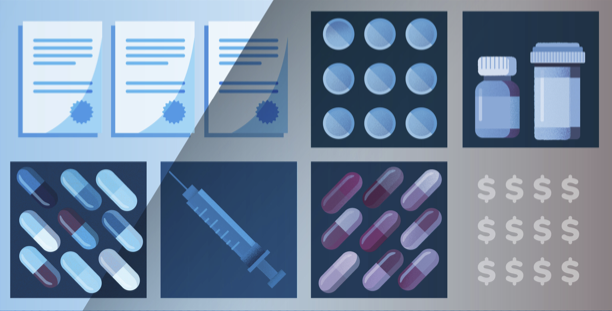I-MAK has always proclaimed that patent reform is a policy solution that has uniquely bipartisan appeal. Now, during an era of deep political polarization, we’re seeing that potential realized. Restoring integrity to the broken patent system is standing out as both a pro-competition and pro-corporate accountability solution to the drug pricing crisis.
Earlier this month, we witnessed the latest swell of bipartisan action on patent abuse in the form of a new bill that could help curb the effects of patent thickets. The bill is being pushed forward by a coalition of liberal Democrats and influential Republicans in the Senate and House, including by Sen. Peter Welch, Sen. Mike Braun, Sen. Amy Klobuchar, Rep. Jodey Arrington and Rep. Lloyd Doggett.
If bipartisanship of that level surprises you, you’re not alone. Both Sen. Welch and Rep. Arrington were quick to attribute it to the nature of patent reform as a policy solution. Sen. Welch spoke about how drug companies’ unmitigated desire to “block competition” is responsible for “liberal Democrats and conservative Republicans [saying] ‘Enough.'” Rep. Arrington joked that bipartisanship like this means that there’s either a “change that is desperately needed or you should be looking over the horizon for the Four Horsemen of the Apocalypse.”
All of that to say: the consensus on patent reform isn’t a fluke. Stopping patent abuse is a common-sense solution for taking on the drug pricing crisis and providing relief to Americans who’ve been paying far too much for life-saving medicines for far too long.
With more legislators in both parties getting onboard the patent reform train, the next stop must be fighting for upstream solutions that address patent abuse at its root. We present these solutions, including improving patent quality and establishing rigorous examination standards, in our latest policy blueprint.
As we go forward, we will continue to hold industry, policymakers of both parties, and agencies accountable to tackle the drug patent problem and the drug pricing crisis.
Relevant news rundown
The recent momentum around patent reform is not at all limited to the patent thicket bill we mentioned above.
Drugmakers’ manipulation of the FDA’s Orange Book, wherein they improperly add patents in order to illegitimately block competitors, has been at the center of recent action by lawmakers. Since the FTC challenged over one hundred improperly listed patents in December, Sen. Elizabeth Warren, Sen. Amy Klobuchar, Rep. Tammy Baldwin, and Rep. Pramila Jayapal have all separately sent letters to different major drugmakers urging them to remove improperly listed patents. Rep. Baldwin’s letter, which went out just this week, specifically called out companies’ intentions to price-gouge patients on life-saving inhalers.
Meanwhile, the Senate’s Health, Education, Labor and Pensions (HELP) Committee and its Chair Sen. Bernie Sanders are launching separate initiatives to investigate drugmakers over the price of key blockbuster drugs and inhalers. Sanders has accused companies of exploiting loopholes in patent law, saying “They are manipulating the patent system, very effectively…they make tiny tweaks to their product, and they keep their exclusive patents for years and years and years, preventing generic competition.”
Accompanying all that activity, The New York Times shined its massive spotlight on the systemic nature of drug patent abuse, singling it out as one of six key reasons why drug prices in the U.S are so high. The Times cited I-MAK’s work exposing AbbVie’s overpatenting of Humira in explaining how drugmakers “[pile] up patents to protect inventions that are only tangentially related to the drug in question.”
Something Hopeful
In the midst of this flurry of action around patent reform, it’s important to remember that this is all about helping patients who are desperately struggling with ever-rising drug costs.
There’ve been a number of patients who’ve published excellent Op-Eds in their local papers about how patent abuse hurts them, such as being forced to ration their insulin and navigate unaffordable costs. These recent articles show that the broader public recognises the need for upstream solutions that address the root causes of rising drug prices, a necessary reminder that short-term fixes will not be enough.
